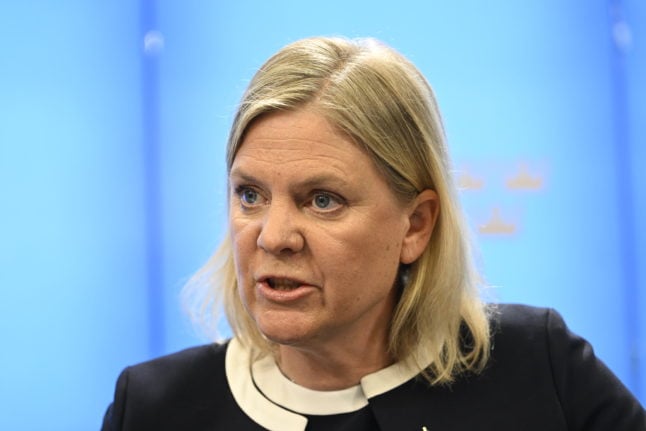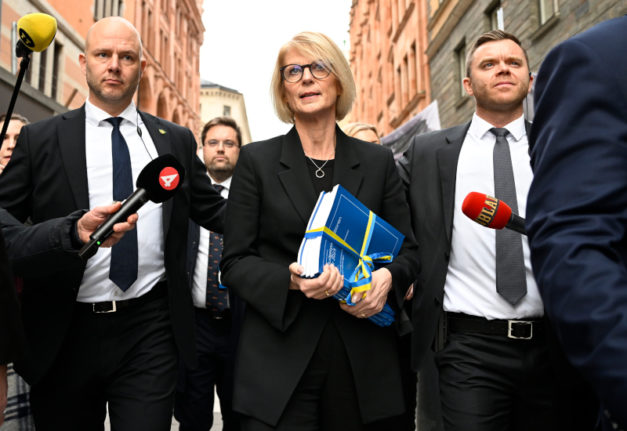The Moderate, Christian Democrat, and Liberal Parties on Thursday said they would back a no-confidence vote against Morgan Johansson, Sweden’s Justice Minister, called by the populist Sweden Democrats.
“We’ve got the point that the single most important measure in crime politics is to send Morgan Johansson into early retirement,” said Henrik Vinge, the Sweden Democrats’ group leader in parliament, as the party announced the call. If the Centre Party decides to back the measure, Johansson will be removed from his position.
Magdalena Andersson came out fighting on Thursday evening, condemning Ulf Kristersson, leader of the opposition Moderate Party, for backing what she said was an irresponsible political stunt, and pledging to resign if the no-confidence vote succeeded.
“It’s horrifically irresponsible,” she said at a press conference on what she described as “the latest gambit from the Sweden Democrats and the Moderates”.
“We are right now three months before a general election and there’s a war in our neighbourhood. To then create a situation of political chaos and insecurity is totally irresponsible,” she said. “It’s flagrant. We are not in a situation for playing political games in Sweden. It’s genuinely dangerous.”
She said that anyone who believed that Sweden’s problems with gun crime and violent gangs came down to a single minister did not understand the problem.
“If you think that this problem is simply about a justice minister, then you haven’t understood the problem at all. Absolutely not at all. We have a justice minister who has worked intensively to hire more police and make punishments tougher. The problem is much bigger than that.”
She said that Sweden’s system of collective decision-making in government meant that if you depose a minister for taking a political decision, then the whole government should resign.
She reserved some of her toughest words for Ulf Kristersson, who she accused of not taking the responsibility an opposition leader should.
“I will naturally need to have a deep think about what sort of opposition leader we have in Sweden,” she said. “To act in this way in this difficult situation is to not to take responsibility.”
The Centre Party, which has the decisive vote on the issue, refused to be drawn on Thursday as to which way it would go.
“We are obviously taking the criticism of Morgan Johansson seriously and are now going to follow up the situation in detail,” said group leader Anders Johnsson. “We are going to calmly discuss the issue in our parliamentary group and then take a decision on our position.”
Morgan Johansson has dismissed the motion as a political play and said he is looking forward to being Justice Minister for four more years.
“I see this as a way for the right-wing parties to up the temperature before the election,” he said. “t’s also a sign that the Sweden Democrats, Moderates, and Christian Democrats are acting much more together, which could mean that in future the Sweden Democrats wants to take over the Justice Department.”



 Please whitelist us to continue reading.
Please whitelist us to continue reading.
Member comments